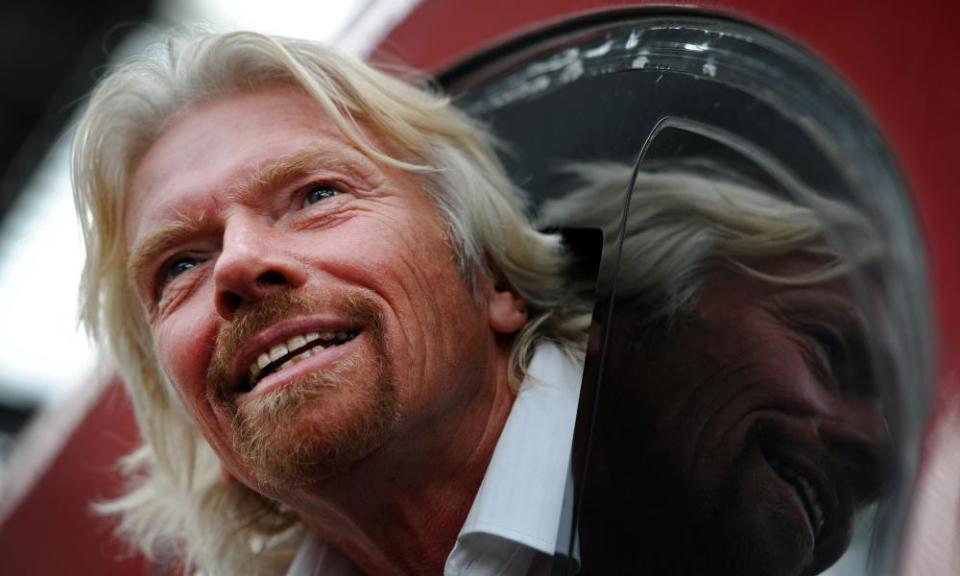No surprise who is the clear winner of £1.7bn Virgin Money takeover

Don’t get too excited by the talk from CYBG about creating the UK’s sixth largest bank via the £1.7bn takeover of Virgin Money. The new status needs qualification. First, in terms of lending in the UK, the combination will still be substantially less than half the size of the fifth largest bank. Second, a large building society, Nationwide, also operates in the same market; it has 15 million members versus the 6 million customers under the combined wings of CYBG and Virgin.
The big banks, in other words, are probably not trembling in fear of an earthquake. Remember that Lloyds Banking Group last year quietly forked out a greater sum – £1.9bn – to get bigger in credit cards by buying MBNA’s UK operation and could call its expansion a modest bolt-on.
Still, the CYBG-Virgin deal makes sense for the two parties involved. Both needed to do something. CYBG’s two brands, Clydesdale and Yorkshire, do not travel well outside their home turf and the previous plan to create an entirely new digital brand, to be called B, sounded hopeful and expensive. It is safer to rebrand everything as Virgin, even at a cost of £60m.
On the Virgin side, both main engines are at risk of developing a splutter. On mortgages, the big lenders are feeling more aggressive now that their capital ratios are healthier. On credit cards, the game of chasing growth via zero-interest teaser rates probably has diminishing returns. CYBG is concentrated in personal accounts and small business lending, so the fit is excellent on paper. And the promised annual cost savings of £120m, to be secured for a one-off hit of £240m (on top of the rebranding bill), look decent – the figure is slightly more than the City expected.
But it’s no surprise to see that the clearest winner will be Sir Richard Branson’s Virgin Enterprises, owner of the Virgin Money brand. Virgin Money was paying £8m annually for the licence, but the sum under CYBG will rise to £12m and then to £15m, or more if turnover targets are met. One can admire Branson’s skill in pushing his brand deeper into financial services – first with the Northern Rock deal, now with CYBG. Alternatively, it is depressing that, even in an age of supposed technological revolution, CYBG feels the need to write a fat cheque every year to the bearded one in order to get noticed. From the point of the banking beasts, the competitive landscape still looks solid.
Ofwat as unprepared as water firms over ‘beast of the east’
The main finding from Ofwat’s review of water companies’ failures during the “beast from the east” episode is that the regulatory system for compensating customers isn’t up to scratch.
Ofwat, naturally, took a few swings at the culprits for failing to run networks that could withstand the big freeze and rapid thaw. Severn Trent, South East Water, Southern Water and Thames have been told to produce plans to demonstrate how they would do better next time. But the revelation was that only £7m has been paid to customers in compensation so far, a figure that was itself inflated because some firms paid more than statutory minimums. That is across 200,000 customers who Ofwat says were cut off from supply for more than four hours, including the 60,000 off for more than 12 hours.
Why so little compensation. Well, the limits seem too low. A payment of up to £150 for 48 to 72 hours interruption seems inadequate for those obliged also to take time off work or arrange emergency childcare in cases where schools were closed.
Ofwat says it is “concerned” that current compensation range are “not reflective” of the impact on customers and it will launch another review. Put another way, the regulator was as unprepared as the companies whose performance it is criticising.
Wind-up or slip, Norwegian Air should exploit takeover talk
Normal form is to keep your acquisition strategy secret until you are obliged to say something, but Carsten Spohr, chief executive of Lufthansa, seems bizarrely keen to spill the beans. “Everyone in Europe is talking to everyone right now,” he told German newspaper Süddeutsche Zeitung. “There is another wave of consolidation. This means that we are also in contact with Norwegian.”
One assumes his interest in Norwegian Air is serious. The only alternative explanation is that Spohr is winding up Willie Walsh at IAG, owner of British Airways. IAG, owner of 4.6% of Norwegian, has made two approaches already and would be infuriated to lose out. In Norwegian shoes, you’d exploit the competitive tension for all it’s worth – and do it soon. At the current high oil price, tougher times lie ahead for smaller airlines.

 Yahoo Finance
Yahoo Finance 